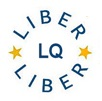The DFG National Research Collection System (Sondersammelgebietssystemplan -SSG) for Print and Electronic Publications
DOI:
https://doi.org/10.18352/lq.7825Abstract
Germany (the sum of the sixteen states of the Federal Republic) is historically and politically a decentralized country. The influence of the states is very significant, particularly in cultural and educational affairs (Kulturhoheit der Länder). There are only few organisations that are jointly financed by states and the federal government. One of the most important of these is the Deutsche Forschungsgemeinschaft (DFG), the German Research Foundation. It is mainly driven by the research community, and a highly efficient evaluation system, managed by a well-organized office in Bonn. Founded as the ‘Notgemeinschaft der deutschen Wissenschaft’ after the Second World War, the DFG began a library acquisitions programme, mainly for foreign research material, in 1948 (Schmidt & Oertel, 1966). The aim was - and is - to provide a copy of every publication of research interest in at least one German library. There was - and is - no real national library in Germany. Leading libraries such as the Prussian State Library[1] were divided after the Second World War, or were severely damaged like the Bavarian State Library. As a result, the organisational scheme was simple and yet sophisticated: · to seek the most important holdings, · to give the library with the strongest collection special funding to acquire foreign material (nowadays about 66% of costs); and · to ask the library to take responsibility for buying foreign material as well as the complete range of German publications, and the staff required for acquisitions processing and interlibrary loan services.Downloads
Download data is not yet available.

Downloads
Published
2005-11-23
Issue
Section
Articles
License
Copyright (c) 2005 Elmar Mittler

This work is licensed under a Creative Commons Attribution 4.0 International License.
How to Cite
Mittler, E. (2005). The DFG National Research Collection System (Sondersammelgebietssystemplan -SSG) for Print and Electronic Publications. LIBER Quarterly: The Journal of the Association of European Research Libraries, 15(3-4). https://doi.org/10.18352/lq.7825





